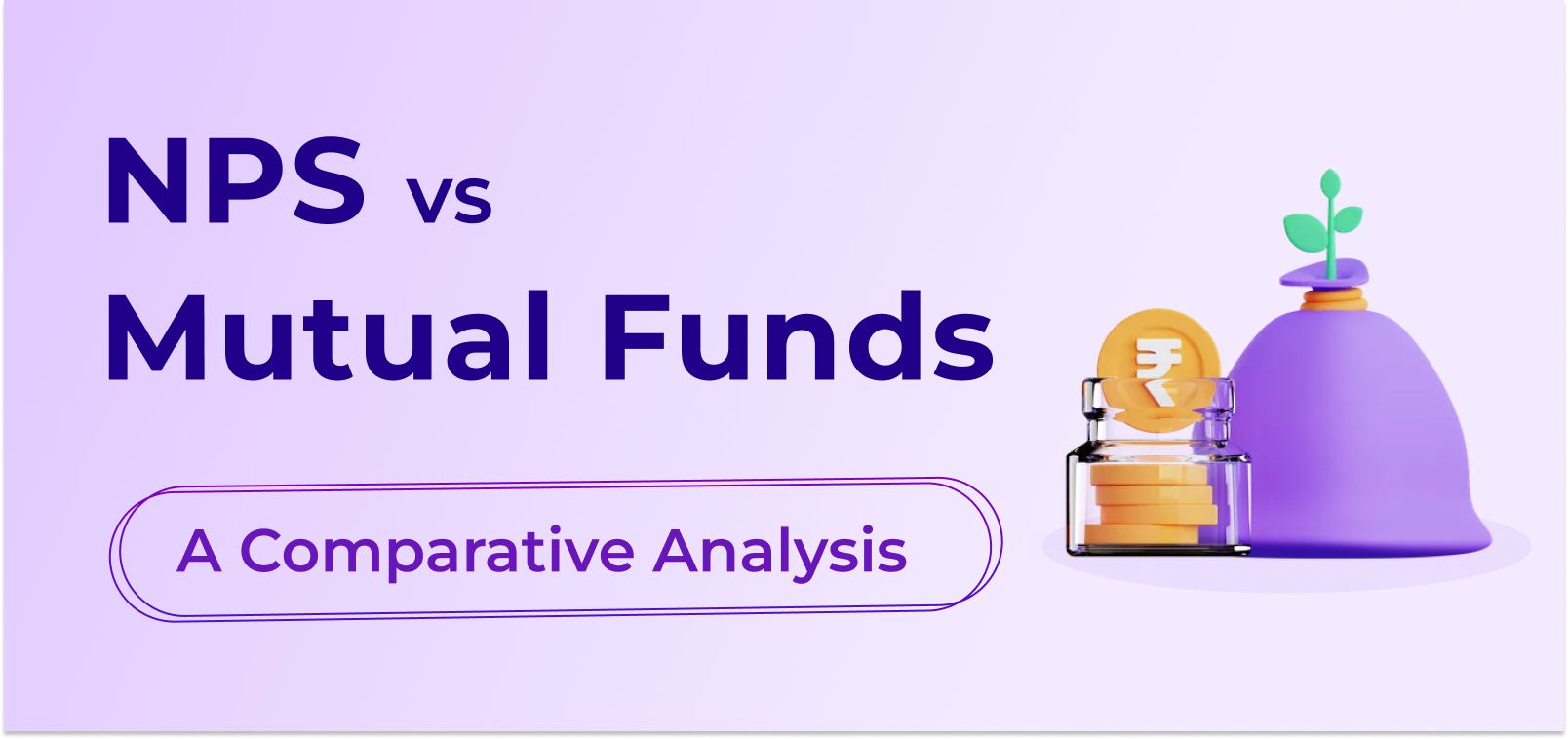NPS vs Mutual Funds: Which is Better for Retirement Planning?

Retirement planning is crucial to ensure financial independence and maintain your lifestyle post-retirement. In India, two popular instruments dominate this space: the National Pension System (NPS) and Mutual Funds (MFs). Both offer unique advantages, but understanding their differences is key to making an informed decision. Let’s dive into their features, compare them, and determine which suits your retirement goals.
What is the National Pension System (NPS)?
The NPS is a government-backed, voluntary retirement savings scheme regulated by the Pension Fund Regulatory and Development Authority (PFRDA). It emphasizes disciplined, long-term savings with a structured withdrawal plan.
Key Features of NPS:
- Asset Allocation: Automatically adjusts based on age (e.g., 50% equity for those below 30, shifting to safer bonds as you age).
- Tax Benefits: Up to ₹2 lakh under Section 80CCD(1B) + employer contributions (if applicable).
- Withdrawal Rules: At 60, 60% of the corpus is tax-free; the remaining 40% must be used to buy an annuity (taxable as income).
- Low Cost: Expense ratio capped at 0.09%, making it cost-effective.
- Returns: Equity (Scheme E) offers ~14% historical returns over 10 years; debt options yield 8-9%.
What are Mutual Funds (MFs) for Retirement?
Mutual Funds pool money from investors to invest in equities, debt, or hybrid assets. Retirement-focused MFs are solution-oriented schemes with lock-in periods or systematic withdrawal plans (SWPs).
Key Features of Retirement MFs:
- Flexibility: Choose from equity, debt, or hybrid funds based on risk appetite.
- Higher Returns: Equity-oriented funds historically deliver 10–12% annualized returns (e.g., ICICI Prudential Retirement Fund-Pure Equity gave 55.47% over 5 years).
- Liquidity: Partial withdrawals allowed post-lock-in (typically 5 years or retirement age).
- Taxation: Short-term gains taxed at 15%; long-term gains (over 1 year for equity) taxed at 10% over ₹1 lakh.
- Expense Ratio: Higher than NPS (~1-2%), impacting net returns.
NPS vs Mutual Funds: Comparison Table
| Feature | NPS | Mutual Funds |
| Regulator | PFRDA | SEBI |
| Asset Allocation | Auto-adjusted based on age | Self-managed or advisor-guided |
| Lock-in Period | Until retirement (60 years) | 5 years (retirement funds) |
| Tax Benefits | ₹2 lakh under 80CCD(1B) + employer contributions | ₹1.5 lakh under 80C (ELSS) |
| Withdrawal Rules | 60% tax-free; 40% annuity (taxable) | Full withdrawal (taxable as per slab) |
| Expense Ratio | 0.09% (max) | 1-2% |
| Returns (10-Year Avg) | Equity: ~14%, Debt: ~8-9% | Equity: 10–12%, Debt: 7–8% |
| Risk | Moderate (auto-rebalancing) | High (equity) to Low (debt) |
| Annuity Requirement | Mandatory (40% corpus) | Optional |
Which is Better: NPS or Mutual Funds?
Choose NPS if:
- You prefer a structured, low-cost plan with auto-rebalancing.
- Tax savings and guaranteed annuity income post-retirement matter.
- You’re comfortable with limited liquidity until 60.
Choose Mutual Funds if:
- You seek flexibility in asset allocation and withdrawals.
- Higher returns (via equity) and no annuity mandate are priorities.
- You can actively manage investments or consult an advisor.
Verdict:
For risk-averse investors, NPS is ideal due to its stability, tax benefits, and forced discipline. Aggressive investors may prefer Mutual Funds for higher growth potential. A balanced portfolio combining both can leverage NPS’s safety and Mutual Funds’ flexibility.
Conclusion
Both NPS and Mutual Funds have distinct roles in retirement planning. While NPS offers a cost-effective, regulated pathway with tax perks, Mutual Funds provide versatility and growth opportunities. Assess your risk tolerance, liquidity needs, and long-term goals to decide—or blend both for a diversified retirement corpus.



